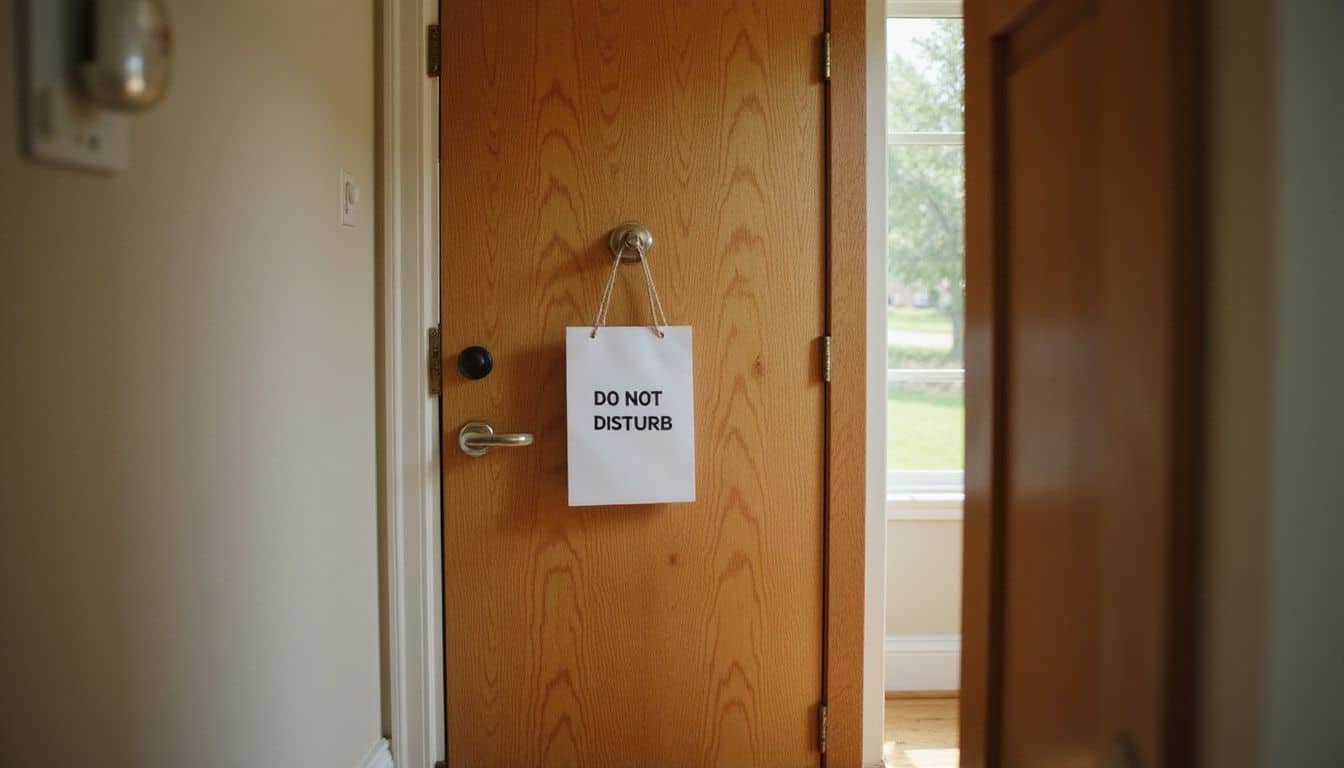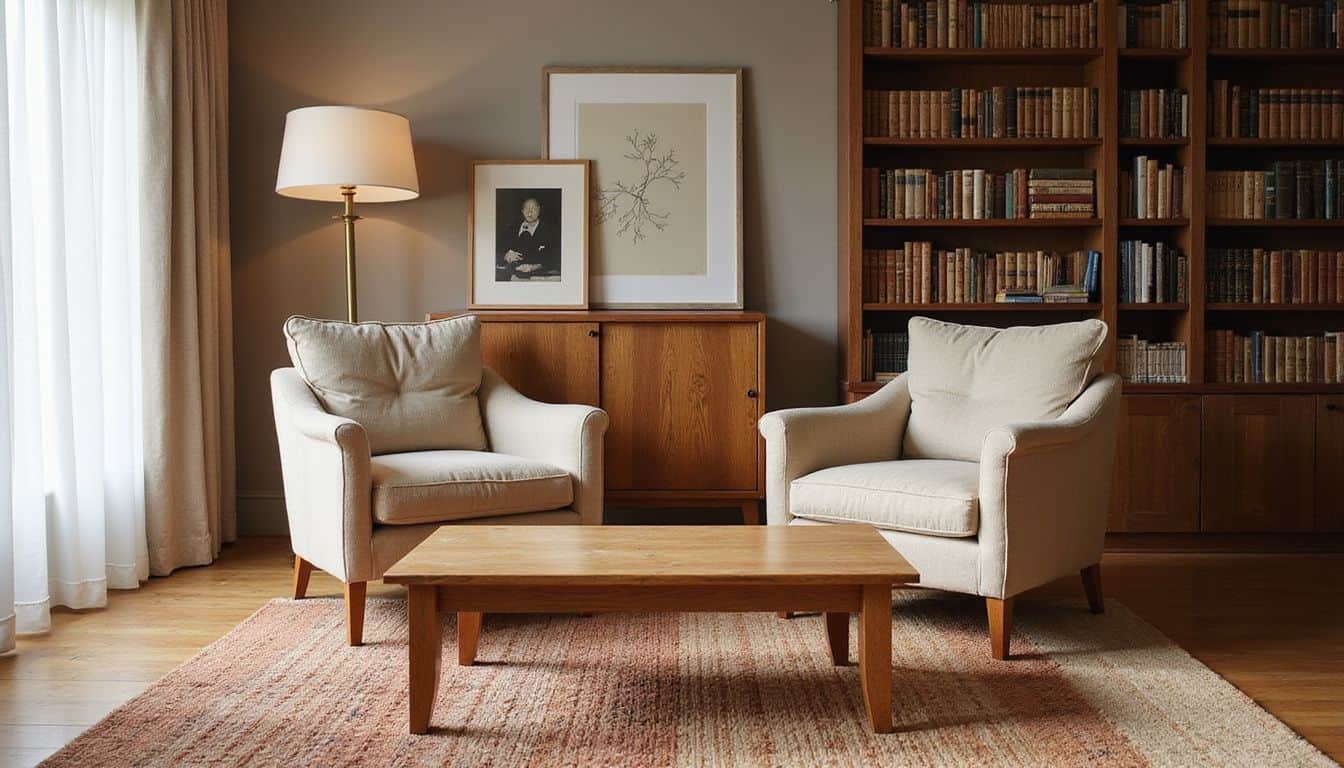Dating can feel like walking through a minefield when you don’t know where your limits are. Without clear boundaries when dating, many women find themselves feeling drained, confused, or even losing their sense of self in romantic relationships.
This guide breaks down nine simple steps to help you create healthy boundaries that protect your emotional well-being while building stronger connections with romantic partners. Ready to transform your love life?
Key Takeaways
Dating boundaries are invisible lines that protect your mental health, emotional well-being, and personal values from disrespectful behavior.
Healthy boundaries include emotional, physical, intellectual, financial, and time limits that prevent codependency and maintain individual identity.
Clear communication using “I” statements and consistent enforcement help establish and maintain effective boundaries with dating partners.
Respecting others’ boundaries through active listening and avoiding manipulation builds trust and creates stronger, healthier romantic connections.
Warning signs of unhealthy boundaries include emotional manipulation, excessive jealousy, controlling behavior, and dismissing your personal limits.
Table of Contents
What does it mean to have boundaries in dating?

Now that we’ve explored why boundaries matter in your love life, let’s break down what they actually mean in practice. Boundaries in dating are the invisible lines you draw to protect your mental health, emotional well-being, and personal values.
They define what behavior you find acceptable from a romantic partner and what crosses the line into discomfort or disrespect. Think of them as your personal rulebook that helps you maintain your sense of self while building a connection with someone new.
Clear boundaries cover every aspect of your relationship, from how you communicate during disagreements to how much personal space you need for your hobbies and friendships.
These limits aren’t walls meant to keep people out; they’re guidelines that help you build trust and prevent resentment from growing over time. Healthy relationships thrive when both people understand and respect each other’s boundaries, creating a foundation for meaningful connections that last.
Why are boundaries important for healthy relationships?

Understanding what boundaries mean in dating naturally leads us to explore their critical role in building lasting, healthy relationships. Boundaries serve as the foundation that strengthens relationships by promoting autonomy and reducing codependency between partners.
They create a clear framework where both people can maintain their individual identity while growing together. Without proper boundaries, couples often fall into patterns where one person loses themselves in the relationship, leading to resentment and emotional exhaustion.
Setting boundaries early in relationships prevents misunderstandings and emotional overload that can damage the connection before it has a chance to flourish. These limits help partners respect each other’s personal comfort zones while building mutual respect.
Strong boundaries also protect your physical well-being and mental health by ensuring you don’t compromise your core values for someone else’s approval.
Boundaries play a crucial role in improving self-esteem and overall well-being by clarifying individual responsibilities and needs within the relationship. They help you maintain your sense of self-respect while avoiding the trap of becoming codependent on your partner’s validation.
Many friends struggle with low self-esteem because they never learned to set proper emotional boundaries with their romantic interests. Lacking boundaries often leads to toxic relationships where one person feels constantly taken advantage of, creating cycles of anger and shame that poison the connection.
Clear limits around intimacy, finances, and personal time allow both partners to feel secure and valued. These boundaries also extend to understanding consent in dating, ensuring that both people feel comfortable expressing their needs and limits.
Strong boundaries create space for genuine romance to grow because both partners can be authentic without fear of losing themselves in the process.
Types of boundaries in dating relationships

Dating relationships need different types of limits to keep both people happy and safe — from protecting your feelings and thoughts to managing money and time together.
What are emotional boundaries in dating?

Emotional boundaries protect your feelings and mental wellness from harm during romantic relationships. These limits help you maintain your sense of self while dating someone new. You decide which emotions to share, when to share them, and how much personal information feels comfortable to reveal.
Emotional boundaries also mean keeping some thoughts private until trust develops between you and your partner.
Strong emotional boundaries prevent you from discussing your deepest fears or future dreams too early in courtship. They stop you from becoming emotionally dependent on someone you barely know.
These limits protect against heartbreak and emotional damage that comes from opening up too quickly. Maintaining friendships outside your romantic relationship keeps you from isolation and helps preserve your identity.
Physical boundaries work hand-in-hand with emotional limits to create a complete protection system.
How do physical boundaries work in dating?

While emotional boundaries protect your feelings and mental space, physical boundaries guard your body and personal comfort zones. These limits help you decide what kind of touch feels right and what doesn’t work for you.
Physical boundaries include preferring handshakes over hugs or restricting access to personal spaces. You might feel comfortable with cuddles but not ready for more intimate contact.
Some women choose to abstain from physical affection until marriage, while others set different limits based on their values. Your physical boundaries should be specific, realistic, and adaptable rather than fixed rules.
Open communication about boundaries is crucial for partners to understand each other’s values and intentions. You can adjust these limits as your relationship grows, but you control the pace and comfort level at all times.
Your body is yours, and you get to decide who touches it, when, and how.
What are intellectual boundaries in relationships?

Intellectual boundaries respect individual ideas and thoughts within a relationship. These boundaries create safe spaces where partners can share opinions without fear of judgment or dismissal.
Your mind deserves protection from constant criticism or attempts to change your core beliefs. Partners who honor intellectual boundaries listen actively and value different perspectives, even during heated conversations about faith, politics, or personal values.
Regular check-ins about intellectual boundaries foster comfort and understanding between partners. These discussions help couples navigate differences in imagination, creativity, and problem-solving approaches.
Establishing intellectual boundaries enhances individual well-being by preserving your unique way of thinking. Strong intellectual boundaries prevent one partner from dominating conversations or dismissing the other’s contributions to important decisions.
Physical boundaries come next in creating a complete framework for healthy relationships.
Why are financial boundaries important when dating?

Just as intellectual boundaries protect your thoughts and beliefs, financial boundaries safeguard your money and spending choices. Financial boundaries prevent conflicts over shared expenses and spending habits that can destroy relationships.
These limits help couples avoid arguments about who pays for dinner, vacations, or other costs. Clear financial boundaries contribute to mutual respect and understanding regarding money matters between partners.
Setting financial boundaries reduces tensions from differing financial priorities and perspectives that often emerge during dating. Couples should communicate their financial limits to maintain individual financial independence while building trust.
You protect your credit card information, savings goals, and spending habits when you establish these boundaries early. Financial boundaries also prevent one person from taking advantage of the other’s generosity or resources, creating a balanced partnership where both people contribute fairly to shared experiences.
How to manage time boundaries in dating?

Time boundaries protect your personal life and relationships from becoming overwhelmed by dating demands. Set clear limits on how many dates you’ll go on each week, and stick to specific days for dating activities.
Block out time for self-care, friends, family, and hobbies that matter to you. Your phone calendar becomes your best friend here, helping you track commitments and avoid double-booking yourself.
Communicate your time commitments clearly to avoid misunderstandings with potential partners. Tell them upfront about your work schedule, family obligations, and personal priorities.
Use time management tools like smartphone apps or planners to stay organized with your dating schedule. Regularly reassess and adjust these time boundaries as your relationships evolve, because what works in early dating might need tweaking as things get more serious.
Examples of healthy boundaries in dating

Healthy boundaries in dating look different for every couple, but they all share common traits that protect both partners’ well-being and create space for genuine connection to grow. Once you experience these examples firsthand, you’ll understand why they’re so impactful for your love life.
How to communicate personal needs clearly?

Communicate your personal needs using “I” statements to express your feelings and desires. Say “I need some alone time after work” instead of “You always want to hang out when I’m tired.” This approach prevents your partner from feeling attacked while making your boundaries crystal clear.
Practice what you want to say before important conversations to boost your confidence and ensure you cover all your key points.
Choose calm moments without distractions for these boundary discussions. Turn off your phone, find a quiet space, and address any feedback your partner shares. Clear communication about your needs helps maintain boundaries in your relationship while showing respect for both yourself and your partner.
Your personal limits deserve attention, and expressing them directly creates a foundation for healthier connections.
The most powerful thing you can do is be clear about what you need and ask for it directly.
Why is respecting personal space and time essential?

Expressing your needs clearly sets the foundation, but respecting personal space and time takes healthy relationships to the next level. Personal space gives you room to breathe, think, and maintain your individual identity while dating.
Time boundaries protect your mental health and prevent burnout from constant togetherness. Clear boundaries foster trust and mutual respect between partners, creating a stronger connection over time.
Healthy boundaries allow individuals to express their needs and feel valued in their relationships. Your partner needs alone time to recharge, pursue hobbies, or spend time with family and friends.
Respecting these limits shows you care about their well-being and independence. Privacy becomes crucial for maintaining your sense of self, especially when working from home or managing personal responsibilities.
Space and time boundaries help you avoid the trap of losing yourself in a new relationship, keeping both partners emotionally healthy and engaged.
How can couples agree on financial contributions?

Money talks can feel awkward, but couples need clear agreements about who pays for what. Start by sharing your financial backgrounds openly, including any debts or savings goals you both have.
This transparency helps you understand each other’s money situation and creates trust from the beginning. Set transparent financial boundaries to ensure personal security and relationship health, discussing everything from date expenses to future shared costs.
Define both separate and shared financial goals, considering differing priorities that each person brings to the relationship. Maybe one person wants to save for travel while the other focuses on paying off student loans.
Create a simple system that works for both of you, whether that means splitting everything 50/50 or contributing based on your incomes. Regularly review and adjust shared financial goals and budgets to maintain alignment as your relationship grows and changes over time.
How can you set boundaries when dating?

Setting boundaries in dating starts with knowing yourself and what you need to feel safe and respected. You must speak up clearly about your limits and stick to them, even when it feels uncomfortable or challenging.
How to reflect on your values and limits?

Start by sitting down with a journal or notebook and asking yourself what truly matters to you in a relationship. Your core values might include honesty, respect, loyalty, or shared goals for the future.
Think about past dating experiences where you felt uncomfortable or upset, these moments often reveal where your personal limits lie. Reflecting on personal values is crucial for establishing boundaries in dating and relationships, as it helps you understand what you will and won’t accept from a partner.
Take time to identify specific situations that drain your energy or make you feel resentful. Maybe you feel overwhelmed when someone texts you constantly, or perhaps you get anxious when dates expect you to split expensive restaurant bills.
Recognizing personal limits helps prevent feelings of resentment and emotional exhaustion that can damage your well-being. Write down these limits clearly, whether they involve your time, money, physical space, or emotional energy.
This self-awareness becomes the foundation for maintaining boundaries that protect your mental health and create space for genuine connection. You might also need to consider boundaries with an ex if past relationships still affect your current dating life.
Once you understand your values and limits, you can move forward with communicating them clearly to potential partners.
What are ways to communicate boundaries clearly and assertively?

Once you know your values and limits, you need to share them with your dating partner. Clear communication makes the difference between healthy relationships and toxic ones. Use “I” statements to express your feelings without blaming others.
For example, say “I feel uncomfortable when conversations turn sexual too quickly” instead of “You always push things too fast.” This approach helps your partner understand your needs without feeling attacked.
Practice what you want to say before important conversations. Many women find it helpful to rehearse boundary discussions in front of a mirror or with trusted friends. Choose calm moments for these talks, away from distractions like phones or television.
I learned this lesson the hard way after trying to discuss financial boundaries during a stressful dinner date. The conversation went nowhere because we both felt overwhelmed. Pick quiet settings where you both can focus completely on each other’s words and feelings.
Why is consistency important in enforcing boundaries?
Clear communication sets the foundation, but consistency makes boundaries stick. Your partner needs to see that you mean what you say every single time. Consistency in enforcing boundaries prevents confusion and reinforces established expectations.
This approach builds trust and shows your partner that your limits matter to you.
Mixed signals create chaos in relationships. If you enforce a boundary one day but ignore it the next, your partner won’t take it seriously. Establishing boundaries early in relationships can mitigate future misunderstandings and frustrations.
Your dating life becomes smoother when both people know exactly what to expect from each other.
How should you respond to boundaries set by others?

Respecting someone’s boundaries shows maturity and builds trust in your relationship. When your partner sets limits, listen carefully and honor their decisions without pushing back or making jokes about their needs.
How to practice active listening and respect?
Active listening means giving your full attention to your partner’s words, feelings, and needs. Put away your phone, make eye contact, and focus completely on what they’re saying. Don’t interrupt or plan your response while they’re talking.
Ask questions to clarify their meaning instead of making assumptions about their thoughts. This approach prevents misunderstandings and shows genuine care for their perspective. Effective talking and listening skills enhance relationships by creating deeper understanding between partners.
Respect their boundaries by accepting their limits without arguing or trying to change their mind. Avoid dismissing their concerns or making jokes about their personal rules. Take their boundaries seriously, even if you don’t fully understand them.
Show appreciation for their honesty in sharing these limits with you. Your partner’s boundaries reflect their values and past experiences, so honor them consistently. This mutual respect for individuality creates stronger, healthier connections that benefit both people in the relationship.
Why avoid overstepping or dismissing others’ boundaries?
Overstepping boundaries can result in feelings of disrespect and devaluation in relationships. Your partner needs to feel heard and valued, not pushed aside or ignored. Dismissing someone’s limits shows you don’t care about their comfort or well-being.
This behavior damages trust and creates distance between you both. Sexual boundaries deserve special respect, as crossing these lines can cause lasting harm. People who ignore boundaries often struggle with addiction to control or power over others.
Respecting limits builds stronger connections and prevents emotional manipulation. Healthy boundaries prevent disruptions in personal and professional relationships, keeping your dating life balanced.
Psychology research shows that couples who honor each other’s needs stay together longer. Your partner’s time boundaries matter just as much as yours do. Ignoring these limits can lead to burnout and imbalance in responsibilities for both people.
Teens and adults alike need clear boundaries to feel safe in relationships.
What are signs of unhealthy boundaries in relationships?

Recognizing unhealthy boundaries in relationships can save you from emotional pain and manipulation. Watch for partners who dismiss your feelings, control your time with family or friends, or pressure you into uncomfortable situations despite your clear “no.
How to recognize emotional manipulation or control?
Emotional manipulation often includes excessive jealousy and controlling behaviors that make you feel trapped or guilty. Your partner might check your phone constantly, demand to know where you are at all times, or get angry when you spend time with siblings or your peer group.
They may also try to control your finances, questioning every purchase you make or insisting they handle all money decisions. Gaslighting becomes a regular pattern where they make you doubt your own memory or feelings, saying things like “that never happened” or “you’re being too sensitive.”.
Power imbalances and emotional disconnection contribute to emotional manipulation in ways that slowly chip away at your confidence. A controlling partner might isolate you from family and friends, making it harder for you to maintain healthy relationships outside the romance.
They could also undermine your work, especially if you have remote work flexibility, by creating drama during important calls or deadlines. Emotional neglect shows up when they dismiss your needs while expecting you to meet all of theirs, creating an uneven dynamic that leaves you feeling drained and unworthy.
What does a lack of respect for personal limits look like?
A lack of respect for personal limits shows up in many obvious ways that can damage your dating life. Your partner might pressure you to engage in uncomfortable situations, even after you’ve clearly said no.
They ignore your requests for personal space or time alone, treating your needs as unimportant. This disregard for individual comfort creates stress and makes you feel unheard. Some people dismiss your boundaries as “too sensitive” or “unrealistic,” which shows they don’t value your feelings.
Controlling behavior becomes another red flag that signals unhealthy boundaries in your relationship. Your partner might check your phone without permission, question your friendships, or demand to know your whereabouts constantly.
They use emotional manipulation to make you feel guilty for having limits, saying things like “If you loved me, you would…” This neglect of emotional needs creates resentment and emotional exhaustion over time.
These patterns lead to toxic relationships where mutual respect disappears completely. Moving forward requires recognizing these warning signs and taking action to protect yourself.
How can you move forward with stronger boundaries?

Moving forward with stronger boundaries starts with Tawwab’s three-step process: be clear, state your needs directly, and accept discomfort. This approach helps you build confidence in your dating life while protecting your emotional well-being.
Self-awareness becomes your foundation as you learn to recognize your limits and communicate them effectively. Many women find that practicing assertiveness in small situations first makes bigger conversations easier later on.
Consistency in enforcing boundaries transforms your relationships over time. Each time you maintain your limits, you teach others how to treat you with respect. Accept that some people might push back when you set boundaries, but this discomfort signals growth in your personal development.
Strong boundaries prevent emotional burnout and create space for healthier connections to flourish in your dating journey.
How Will Dating Boundaries Evolve in 2025?

Dating boundaries will become more digital-focused as technology shapes our romantic lives. Apps will offer new tools to help people set clear limits before meeting someone. Social media platforms will create features that protect personal space and time.
People will use technology to communicate their values and expectations upfront, making dating more efficient and honest.
Smart boundary-setting will mirror the SMART goals approach that Amber Ginter advocates for, becoming specific, measurable, achievable, relevant, and time-bound. Dating apps will likely include boundary-setting features where users can list their limits clearly.
Virtual reality dates might require new types of boundaries around digital intimacy. People will expect regular check-ins about boundaries as relationships progress, making these conversations as normal as discussing weekend plans.
People Also Ask
How does parental authority affect dating boundaries?
Parental authority shapes how young adults learn to set limits in relationships. Parents who model healthy boundaries teach their children to respect themselves and others. This foundation from parenting helps create stronger, more balanced romantic connections.
Can I find this dating guide on Amazon or through the Kindle app?
Yes, you can checkout this boundary-setting guide on Amazon at the current market price. The Kindle app version often offers digital convenience, though list prices may vary between formats.
Does this book include Bible study elements about relationships?
The guide incorporates biblical wisdom, including references to Leviticus and other scriptures that address healthy relationships. These Bible study components provide spiritual guidance for setting appropriate dating boundaries.
What’s the difference between list price and market price for this dating book?
List prices represent the publisher’s suggested retail cost, while market price reflects current selling rates. Amazon often displays both list prices and discounted market prices, so you can compare savings before you checkout.
References
https://vitamagazine.com/2024/08/10/the-importance-of-setting-boundaries-when-you-start-dating/ (2024-08-10)
https://cmr.biola.edu/blog/2022/too-much-too-soon-setting-emotional-boundaries-in-dating
https://www.boundless.org/relationships/how-to-set-physical-boundaries-when-dating/ (2024-10-14)
https://www.marriage.com/advice/marriage-fitness/types-of-boundaries-in-relationships/
https://www.linkedin.com/pulse/healthy-boundaries-relationships-guide-building-them-emma-g-
https://www.betterup.com/blog/healthy-boundaries-in-relationships (2025-03-21)
https://www.amazon.com/Boundaries-Dating-Healthy-Choices-Relationships/dp/0310200342
https://extension.usu.edu/hru/blog/healthy-love-starts-with-boundaries-a-simple-guide-to-sharing-your-needs (2025-04-22)
https://researchingwealth.substack.com/p/04-how-i-set-financial-boundaries
https://positivepsychology.com/great-self-care-setting-healthy-boundaries/
https://butterflyliving.org/how-to-develop-healthy-boundaries/
https://www.verywellhealth.com/setting-boundaries-5208802
https://psychcentral.com/lib/10-way-to-build-and-preserve-better-boundaries
https://mypacifichealth.com/setting-healthy-boundaries-in-relationships/ (2025-05-27)
https://www.lyrahealth.com/blog/boundaries-in-relationships/
https://psychcentral.com/blog/caregivers/2018/02/relationships-12-ways-to-spot-unhealthy-boundaries
https://www.marriage.com/advice/relationship/signs-of-unhealthy-boundaries/
